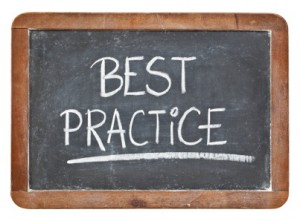 Note from Art: Every week, I provide a few simple (but not simplistic) ideas for you to Do/Experiment/Explore in support of your professional development. Use them in great professional health and personal gain.
Note from Art: Every week, I provide a few simple (but not simplistic) ideas for you to Do/Experiment/Explore in support of your professional development. Use them in great professional health and personal gain.
—
Do:
Identify the one tough discussion you’ve been avoiding and find a slot in your schedule this week (earlier is better) and make it happen. Unresolved issues…a tough feedback discussion, an apology owed to a colleague and all of the other difficult discussions we attempt to avoid, rent space in our minds and add to our background stress. It’s time to clear this issue out and move forward.
To ease your pre-discussion anxiety, take the time to sketch out key elements of your discussion.
- Define the core issue in clear terms. If this is a feedback discussion, you have to isolate on the behavior and the business implication of the behavior.
- Know your desired outcome.
- Plan your opening sentence. Yes, script this one out. The opener sets the tone for the entire discussion.
- Prepare your attitude. If you expect the issue to result in an emotional response, you need to plan your vocal tone and facial expression.
- Find neutral ground to conduct the discussion.
Much like speaking in public, the thought of it is more stressful than the reality of delivering a speech. Get this locked on your calendar and don’t let this week wind to a close without moving forward on this lingering difficult discussion.
Experiment:
Add some life to your regular team meetings. Too many managers squander precious contact team with team members by defaulting to what I describe as the Around-the-Table Update March of Death. You know this meeting. The leader kicks off, shares a few updates on his/her activities and then one by one, everyone in the room does the same. At the end of this in a large group setting, people are drooling from the mind-numbing boredom and irrelevance of most of the updates.
Instead of defaulting to the Around-the-Table approach, mix things up from meeting to meeting. Assign a key, highly relevant topic and have everyone share their ideas or insights.
Examples include:
- What are we doing great that we should be doing more of?
- What are the most disturbing things our competitors are doing that we need to respond to?
- Everyone talk with a salesperson or customer service representative before the next meeting and ask them one of: what they are hearing about how we’re doing/how our competitors are doing/what’s changing in their business, and come prepared to share.
If those don’t suit you, identify your own topics and question. Just vow to take advantage of the gray matter in the room and do something different than the default march of the updates.
Explore:
OK, this one is literally about exploring. Given the challenges, risks and complexity of the world we live and work in, it’s helpful to find inspiration in unusual places, and the age of polar exploration offered many incredible examples.
Read my post, 5 Priceless Lessons from Amundsen and Scott (and/or dig in and research the topic at a deeper level) and consider the challenges they navigated, the approaches of the two great explorers and ultimately what worked and what failed. How can you apply the lessons to your own world of team development, innovation and exploration?
—
OK, I’ve done my part. The rest is up to you. Have a great week as you Do/Experiment/Explore! -Art
—
Don’t miss the next Leadership Caffeine-Newsletter! (All new subscriber-only content!) Register here
For more ideas on professional development-one sound bite at a time, check out: Leadership Caffeine-Ideas to Energize Your Professional Development.
New to leading or responsible for first time leaders on your team? Subscribe to Art’s New Leader’s e-News.
An ideal book for anyone starting out in leadership: Practical Lessons in Leadership by Art Petty and Rich Petro.
